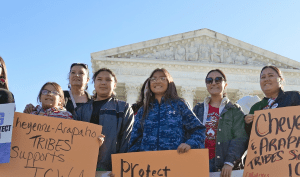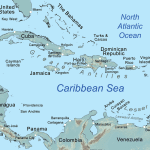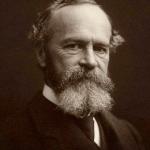There’s an old saying that political battles in the United States are first fought in her schools. And while fewer major national conflicts are centered around nuclear families, it is indeed children who are the ultimate test of the boundaries of state power and liberal democracy. Liberalism presumes autonomous individuals and their rights. But where do the rights of children stand in this matrix? Are they individuals or are they required to be parts of communities and family units who have authority over them until they are old enough to decide where they stand with respect to the state?
Parental rights have resurfaced as a live political issue in the last year. Parents desire the ability to raise children as they see best, but over the last 250 years, states have also asserted their authority over how their citizens were formed. More recently children themselves have begun to articulate rights over and against both parents and the state. The most recent Supreme Court case upholding the Indian Child Welfare Act is one of the latest demonstrations of these tensions—pitting the rights of specific families (sometimes formed through adoption) against those of larger communities such as First Nations with the U.S. government using its liberal foundations based on individualism negotiating the boundaries.
Language around rights (as liberal democracies understand them) began in the 17th century in England and France. However, there was no sense of parental rights or “custody” as we have in the modern era. “Guardians” were only for heirs. Guild or craft masters who oversaw apprentices had their authority by contract, whereas no such legality bound children and parents, so the law didn’t come into it. And there was no sense that a child needed someone legally to nurture them—and even less that they “belonged” to their parents.
As liberalism and the notion of political rights developed, minority groups helped push the boundaries of political authority and advocated for liberties within the growing bureaucratic and coercive modern state. And while Protestant dissenters are often credited with communicating the need for liberty of conscience, in the 17th century it was most often English Roman Catholic parents who pointed out the challenge for families whose goals were different from that of the majority and who wanted to raise their children with beliefs the state found abhorrent.
The public practice of Catholicism was effectively outlawed in England in the seventeenth century. Even John Locke, writing about religious freedom, couldn’t see a way to incorporate Catholics into a liberal-style toleration. Rarely was there an inquisitorial-style hunt to discover secret Catholics under the Stuart monarchs, but priests were not allowed to oversee mass, nor was it legal to have a priest oversee communion in one’s home. The English state was seeking to weed out Catholicism gradually and generationally. Inheriting property or serving in political positions often required swearing oaths that contradicted Catholic belief. And from time to time there were panics about Catholic invasions or uprisings during which many Catholics lost their lives and property. While this only happened sporadically, it remained a background fear for English Catholics even in the best of times.
Parliament repeatedly created laws against sending children abroad to be educated as Catholics. For instance, in the period after the “Popish Plot”, the ‘Recusants (Children’s Education) Bill’ fined parents 1000 pounds (half to the king and half to the person prosecuting) for any woman or any boy under 21 being sent abroad in the care of a Catholic. The boy or woman themselves had to forfeit their inheritance to the nearest of kin who was Protestant. If they were too poor to pay the fine, they had to serve 7 years in prison. All popish recusants were to register the names, ages and places of education of all their children, once every year.
It was in this context that Catholic parents were trying to pass along their faith to their children. While Roman Catholic priests might have hoped to grow the church through conversions, most English Catholic lay people were convinced the true church could only be kept alive through family networks and passing along their practices to their children. At the same time, they wanted to make sure that they kept their land and political positions, if possible. So each family ran a different gauntlet in trying to do this.
Sending children to Catholic schools on the continent was one way to make sure that they connected with other people in their community, received a good religious education, and possibly even developed a calling as a nun or priest. But it was illegal, and travel back and forth could be surveilled by the state. From time to time, the state removed children they suspected of being educated abroad and placed them in the home of a Protestant, usually a family member. This was terrifying for parents, but they frequently mentioned that the pain of sending their children abroad was a way to experience martyrdom. They encouraged their children to see the trip as a kind of spiritual pilgrimage, with all the discomforts and pains and spiritual benefits of a pilgrimage.
But they also petitioned the state to allow them to both practice their faith personally, and to have public sites such as schools and churches so that their children could participate in their religious life. They advocated for privacy within the home and for freedom from violation of the state within their households. They protested against agents of the state bursting into their homes to search them or destroying them in what seemed like arbitrary and vengeful acts because of their religious minority status.
As historians, we don’t often see Roman Catholics as early advocates of what would become foundational liberal rights—principles in the Bill of Rights which would allow for personal flourishing. However, the English state also had its own concerns about the kind of citizenship that it wanted to cultivate and it perceived Catholics as supportive of tyranny and promoting “superstition” and foreign influence. English Catholics had to work hard to convince their state that they should be given full citizenship rights and had no interest in revolting against the government.
Today’s parents may have religious-based concerns around their desire for alternative education or culture from that of the liberal state (Christians, Muslims, atheists, yoga and Eastern faith practitioners all have their own goals for their children). But the state also has a desire to connect people into a sense of the Common Good. These tensions will not go away. It is right that we continue to debate them and petition and advocate and compromise on our way to trying to create the Beloved Community within the wider political polity that we inhabit.














